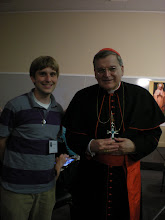Here's the summary for the fifth cycle of reflections in JP2's theology of the body. I apologize for the loong delay in posting these last two summaries. It did take a while for my professor to return the graded summaries, and then the semester ended, summer ensued and I forgot all about this. I'd moved back home for three weeks, which was not good for my spiritual life, but then returning to the town where i go to school was so much better! regardless, finally, here is summary 5 and summary 6 will be posted shortly.
In the second section, John Paul II reflects on the Song of Songs and links it to language of the body, suggesting that Song of Songs could be considered Adam and Eve’s words upon first seeing each other, yet more fully developed. For the spouses in Song of Songs, the notion “my sister, by bride” overcomes libido. This fraternal closeness opens up to eros. The bride is said to be master of her own mystery, which allows reciprocal possession, indicated by the phrase “seal on their whole life”. Here, John Paul II discusses human eros: it searches but never finds, limited by death, though fulfilled by agape. He calls to mind Paul’s words in 1 Corinthians 13: 4-8, comparing their agape with Song of Song’s eros.
In the third and final section, the reflections are on the book of Tobit. Here, the love between the spouses (spoken of in Song of Songs), is put to the test between life and death. It is a test for both spouses. The example of Tobias and Sarah, united in prayer, facing death, becomes model of the liturgy. Thus the language of body becomes language of the liturgy by being anchored in the mystery of the beginning. “The language of the body, reread both in the subjective dimension of the truth of human hearts and in the objective dimension of the truth of living in communion, becomes the language of the liturgy.” (TOB116:4) They model their conjugal life/communion of persons through the covenant and grace that the liturgy proclaims and realizes in the sacrament. Returning to Ephesians, John Paul II summarizes his entire catechesis in terms of the language of the body.




No comments:
Post a Comment